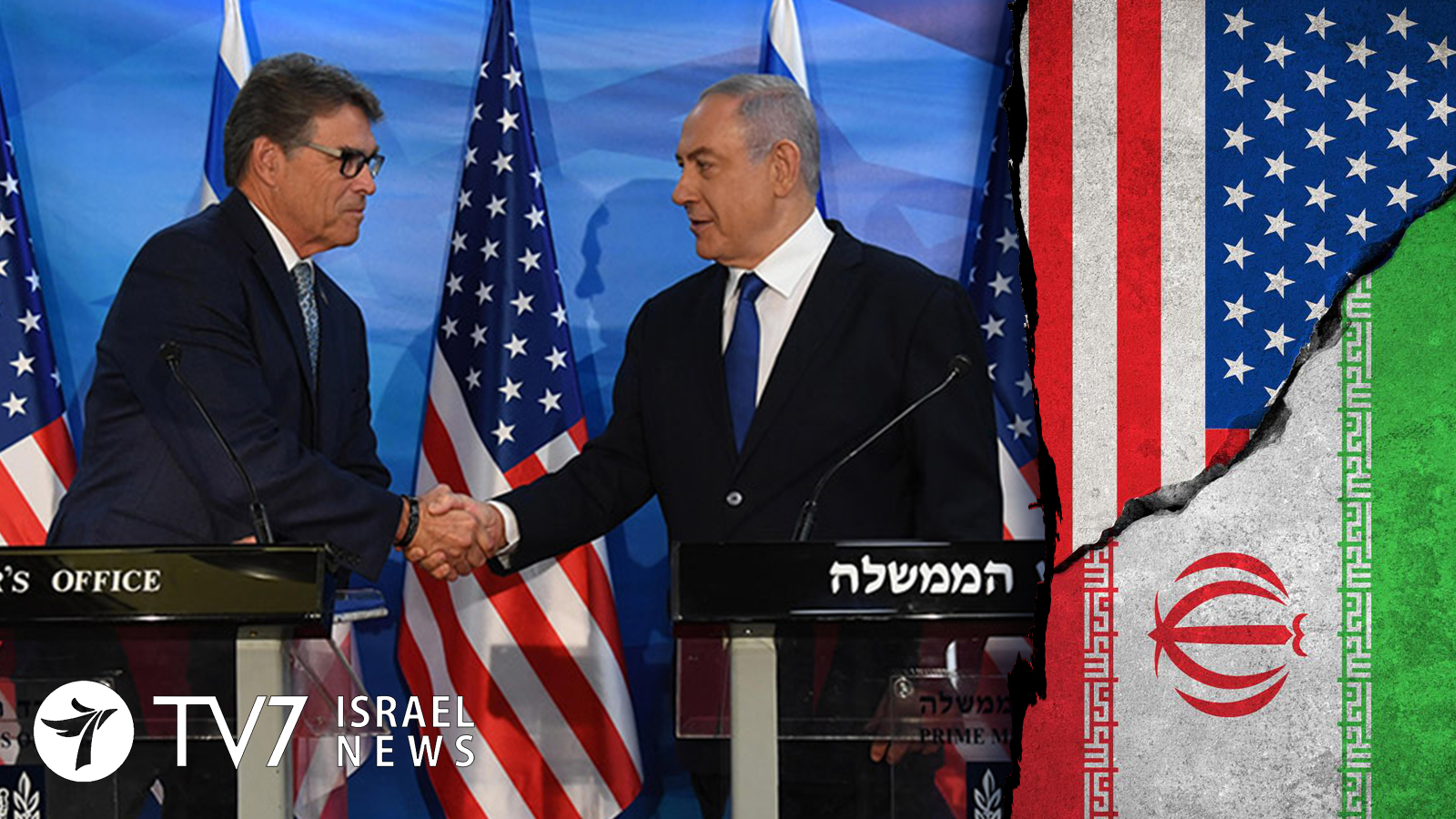Israeli Prime Minister Benjamin Netanyahu had strong words of praise for the hard line U.S. President Donald Trump has taken against Iran. In Jerusalem, the Israeli leader told visiting U.S. Secretary of Energy Rick Perry that “The sanctions that he has imposed are working.” Netanyahu stressed “We see the funds – used by Iran for their aggression in Iraq, Syria, Lebanon and Gaza -drying up. Sanctions have begun to work, and it’s important that they continue to work. It’s important to keep up the pressure.”
Perry was in Israel to meet Prime Minister Benjamin Netanyahu and his Israeli counterpart, Yuval Steinitz, to discuss a variety of issues.
Regarding the nuclear dispute with Tehran, Netanyahu said he believed it was not only within the realm of possibility that Washington’s “maximum pressure campaign” would force the Islamic Republic to abandon its nuclear and regional ambitions, but that such a goal was already happening.
In apparent reference to Iran’s seizure on Friday of the British-flagged Stena Impero oil tanker in the Strait of Hormuz as well as other acts of alleged maritime sabotage for which both Jerusalem and Washington hold the Ayatollah Regime accountable, Netanyahu called on those world nations “who profess their desire to stop Iranian aggression” to join Israel in standing with the U.S. in a show of “common resolve.” He then stressed “We cannot allow Iran to disrupt the flow of oil in international waters.”
After thanking the U.S. Energy Czar “for the forthright position” Washington has “taken against these illegal Iranian acts,” the Israeli premier turned to bilateral energy cooperation. Netanyahu welcomed U.S. cooperation in Israel’s construction of the East Med pipeline, that will ultimately transport gas to Europe.
Israel is on the verge of becoming an energy exporter once the Leviathan gas field starts production this year off the country’s Mediterranean coast. The Texas-based Noble Energy corporation is one of the developers of the project, and a key owner of the nearby Tamar field.
Netanyahu hailed Perry as “a personal friend and a friend of Israel and the Jewish people,” and extolled “the extraordinary alliance between Israel and the United States,” described as “stronger than it’s ever been.”
At a later press conference in the Israeli capital, U.S. Energy Secretary Perry voiced concern over a price jump of crude LCOc1 on Monday following Iran’s capture of the Stena Impero, but was quick to add, however, that, “we find ourselves in a completely different situation than we were a decade ago.”
Perry underscored that “The Iranians will have a more difficult time in influencing the market than they would have 10 years ago,” due to a steady supply of fuel – whether it’s crude, natural gas or other secondary products” by new suppliers.
He also sounded optimistic that additional U.S. energy firms would start exploring off Israel’s shores. “Noble is not going to be the last. There are other U.S. and international companies that are looking,” Perry said, adding, “When you start finding oil … it won’t take long to show up and start drilling and being a part of this.”
Just last week, Israel received bids from two groups of companies to explore for oil and gas off its coast.
They were British newcomers Cairn Energy, International and Israel’s Ratio Oil. The second consortium included repeat bidders Energean and Israel Opportunity. Together they offered to take 12 of the 19 available blocks. Israeli Energy Minister Steinitz said in March that Brazil’s Petrobras was also expected to take part in the tender, and Reuters reported that Exxon Mobil might undertake a policy shift to bid in the auction.
After leaving Israel, Secretary Perry’s next stop is in Cairo, to attend the Eastern Mediterranean Energy Forum on international energy cooperation.
